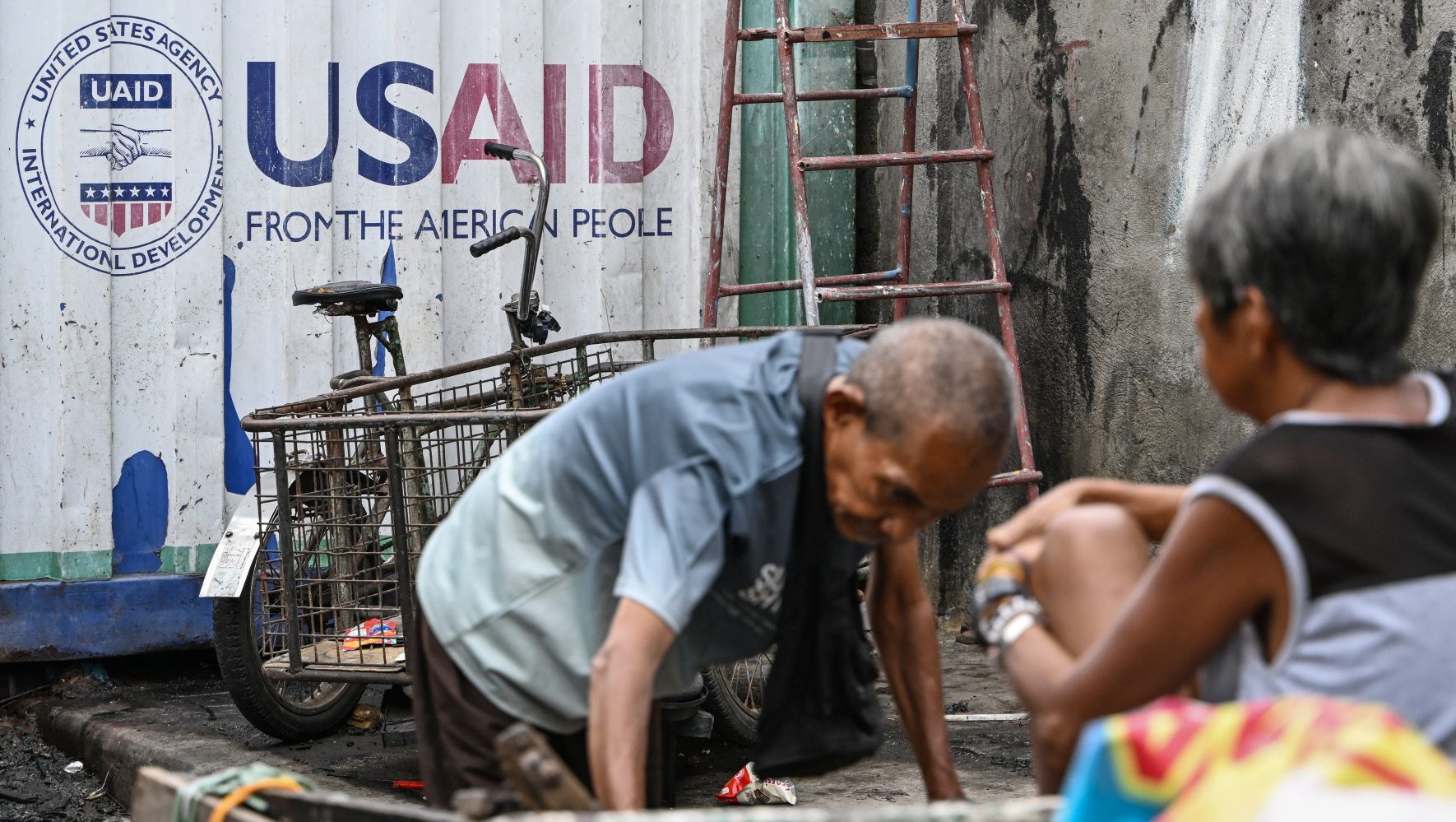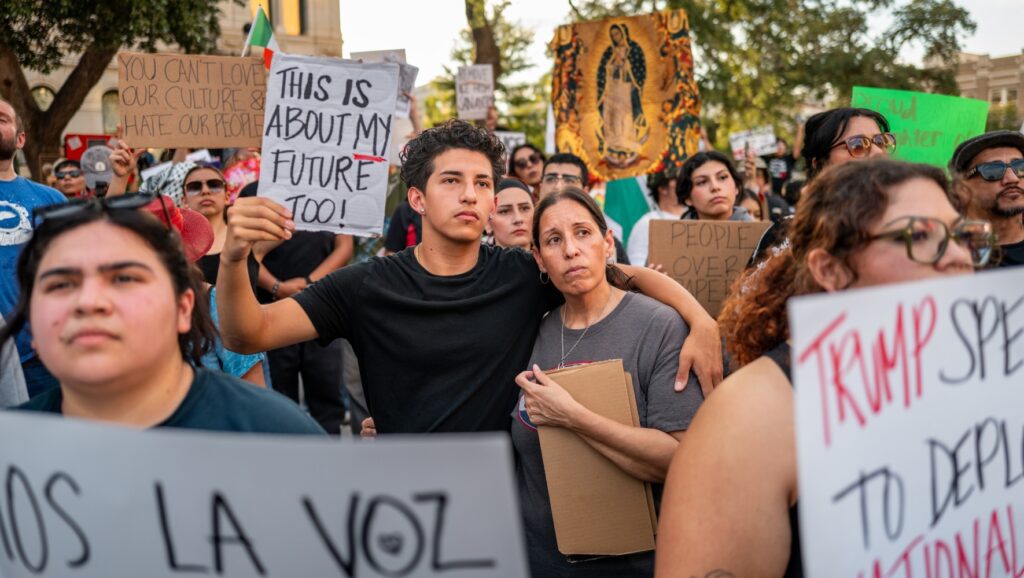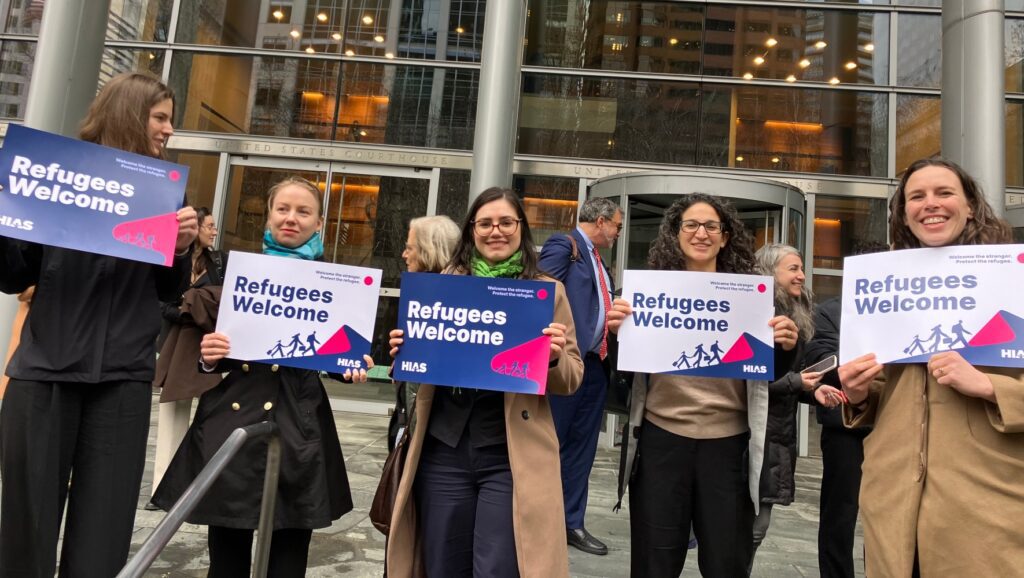
Since taking office, President Trump has issued hundreds of executive orders, memoranda, and proclamations, many of which pertain directly to immigration, asylum, and refugee resettlement. These actions, along with additional executive orders and legislation expected in the weeks and months ahead, are poised to reshape United States policy in a significant way.
In response, HIAS has launched a new series summarizing important developments and explaining what they mean. These recap posts, along with relevant articles, statements, and resources, can be found at a new page we’ve built to track the new administration’s effect on displaced people.
This week, we review how actions taken during Trump’s third week in office impact refugees and other displaced people.
The Dismantling of USAID
What happened: Following the stop-work order on foreign aid programs issued by the U.S. Department of State on January 24, a decision that has had a devastating impact across the globe, the Trump administration has moved to rapidly dismantle the United States Agency for International Development (USAID). Secretary of State Marco Rubio was appointed as acting administrator of USAID as the aid organization was merged with the state department. On February 7, the Trump administration placed the majority of the USAID workforce on leave and recalled thousands of employees who were working overseas. He also suggested that the program be shut down entirely.
What it means: For several decades, USAID supported numerous efforts to address irregular migration and forced displacement, including in Latin America and the Caribbean. The agency’s dramatic restructuring will impact the lives of refugees abroad and undermine our national security. In addition to a worsening humanitarian crisis, the dismantling of USAID will likely increase irregular migration to the United States, which President Trump has vowed to stop.
Termination of Temporary Protected Status (TPS) for Venezuelans
What happened: On February 1, the Trump administration terminated Temporary Protected Status (TPS) for close to 350,000 Venezuelans who have lawful status to live and work in the United States. The termination of TPS for these individuals will place them at imminent risk of deportation after April 2025.
What it means: Many Venezuelans in the United States, will risk their life if they return to their home country. The notice asserted, without evidence, that Venezuelan TPS holders have caused “associated difficulties in local communities,” include members of the Tren de Aragua gang, and are an economic strain to the United States.
Lawsuit Against Asylum Restrictions
What happened: On February 3, immigrant advocacy groups filed a lawsuit to challenge the Trump administration’s restrictions against the right to seek asylum under the pretext that migration on the southern border is an “invasion.” Individuals fleeing persecution can no longer seek asylum to remain safe in the United States.

Jewish Clergy Stand Against Scapegoating and Targeting of Immigrants
Read MoreWhat it means: The right to seek asylum is guaranteed in U.S. and international law. As the lawsuit explains in detail, the United States cannot abrogate or deny this legal right to asylum-seekers based on spurious claims of an “invasion.” To empower the president with this broad and sweeping authority is dangerous and unprecedented.
Judges Enjoin Birthright Citizenship Executive Order
What happened: On February 5, a federal judge in Maryland issued a nationwide injunction prohibiting the Trump administration from denying citizenship to children born to parents without permanent status or citizenship in the United States. The following day, a second federal judge in Washington issued another nationwide injunction against the Trump administration. The federal judge stated that “it has become ever more apparent that to our president, the rule of law is but an impediment to his policy goals.”
What it means: The Citizenship Clause of the 14th amendment to the U.S. Constitution requires that all children born in the United States and “subject to the jurisdiction thereof” are U.S. citizens regardless of the immigration status of their parents. The U.S. Supreme Court affirmed the right to birthright citizenship over 125 years ago.
Texas Attorney General Deputizes State Law Enforcement against Migrants
What happened: On February 2, Texas Attorney General Ken Paxton signed an agreement to deputize state law enforcement to investigate, apprehend, and detain immigrants under section 287(g) of the Immigration and Nationality Act (INA). Section 287(g) permits state and local law enforcement to collaborate with the federal government to enforce federal immigration laws.
To empower the president with this broad and sweeping authority is dangerous and unprecedented.
What it means: This agreement raises serious questions about the separation of powers between federal and state governments. The Supremacy Clause and Foreign Commerce Clause of the U.S. Constitution delegate enforcement of immigration law and management of international borders exclusively to the federal government.
These agreements can undermine public safety raise several concerns including the possibility of racial profiling, due process violations, family separation, and harm to local economies.
Ten Noncitizens Detained in Guantanamo
What happened: On February 4, the Department of Defense (DOD) and the Department of Homeland Security (DHS) transported 10 individuals to a detention facility in Guantanamo Bay in Cuba, marking the beginning of a Trump administration plan to detain as many as 30,000 migrants in Guantanamo. DHS announced that the 10 individuals were all members of Tren de Aragua.
What it means: The detention of individuals apprehended in the United States in U.S. facilities in Guantanamo Bay is unprecedented. The U.S. has historically used Guantanamo Bay to hold enemy combatants apprehended in war or individuals interdicted at sea. The Trump administration has not released information about whether these migrants will be placed in legal proceedings or what legal authority it has to detain individuals abroad.
Trump Administration Sues Over “Sanctuary” Designation
What happened: On February 6, the Department of Justice (DOJ) filed a lawsuit against Illinois and Chicago over “sanctuary” laws that protect undocumented individuals in their communities. These laws prohibit state and local officials from sharing information to federal law enforcement about immigrants.
What it means: The DOJ lawsuit reflects the Trump administration’s hostility to “sanctuary” jurisdictions. Sanctuary laws are a lawful and constitutional use of state and city authority to protect public safety and promote economic vibrancy.



